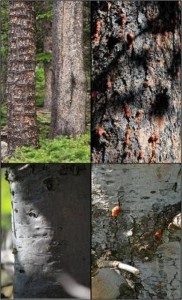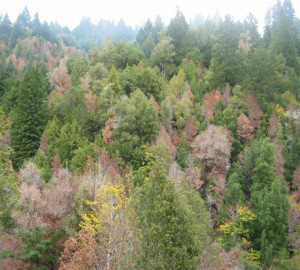
If you’ve driven around the country in recent years, it’s likely you’ve seen vast stretches of pine forest wiped out by the mountain pine beetle. This beetle naturally occurs in North American forests, but changing climatic conditions are causing outbreaks of this now notorious pest and leaving thousands of acres of once green forest, brown.
But there’s good news! New research shows that some pine trees are better able to resist beetle attack. Specifically, Scott Ferrenberg from the University of Colorado found that the beetles have trouble clinging to smooth-barked pines and infest slippery trees less. Just like natural variability in hair color in people, pines of the same species exhibit a range of bark roughness. In a separate study, Ferrenberg and his colleagues also found that pine trees with more resin ducts were better able to deter the beetles.
This information is incredibly helpful to land managers who desire to slow the spread of beetle outbreak by removing infested trees. They may have better success if they target the trees most at risk, the rough-barked pines that produce less pitch. Kudos to the researchers for studying such an important topic and revealing helpful insight into pine resistance to pests.
For more information on new research findings in the redwood forests, visit our Research page.

